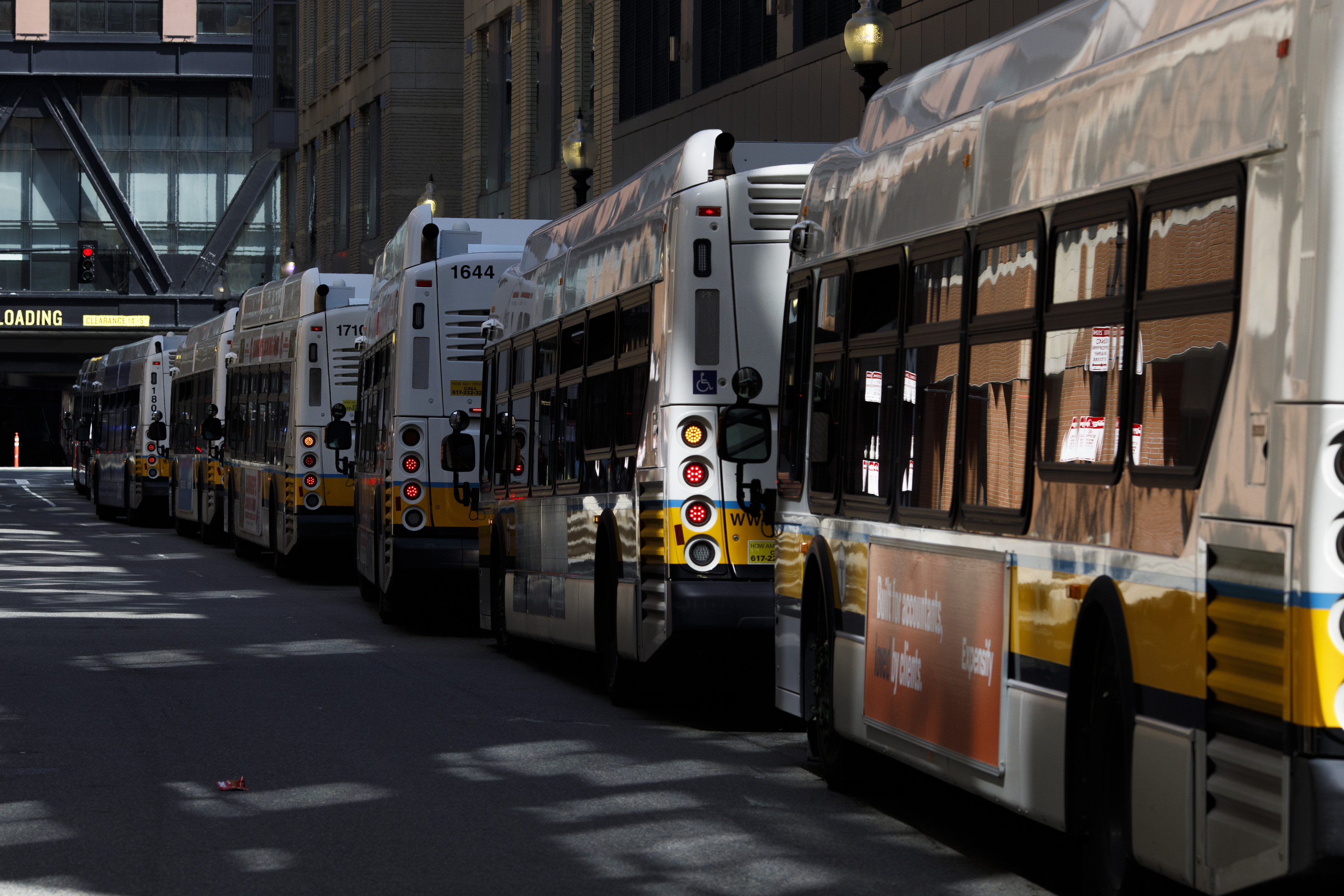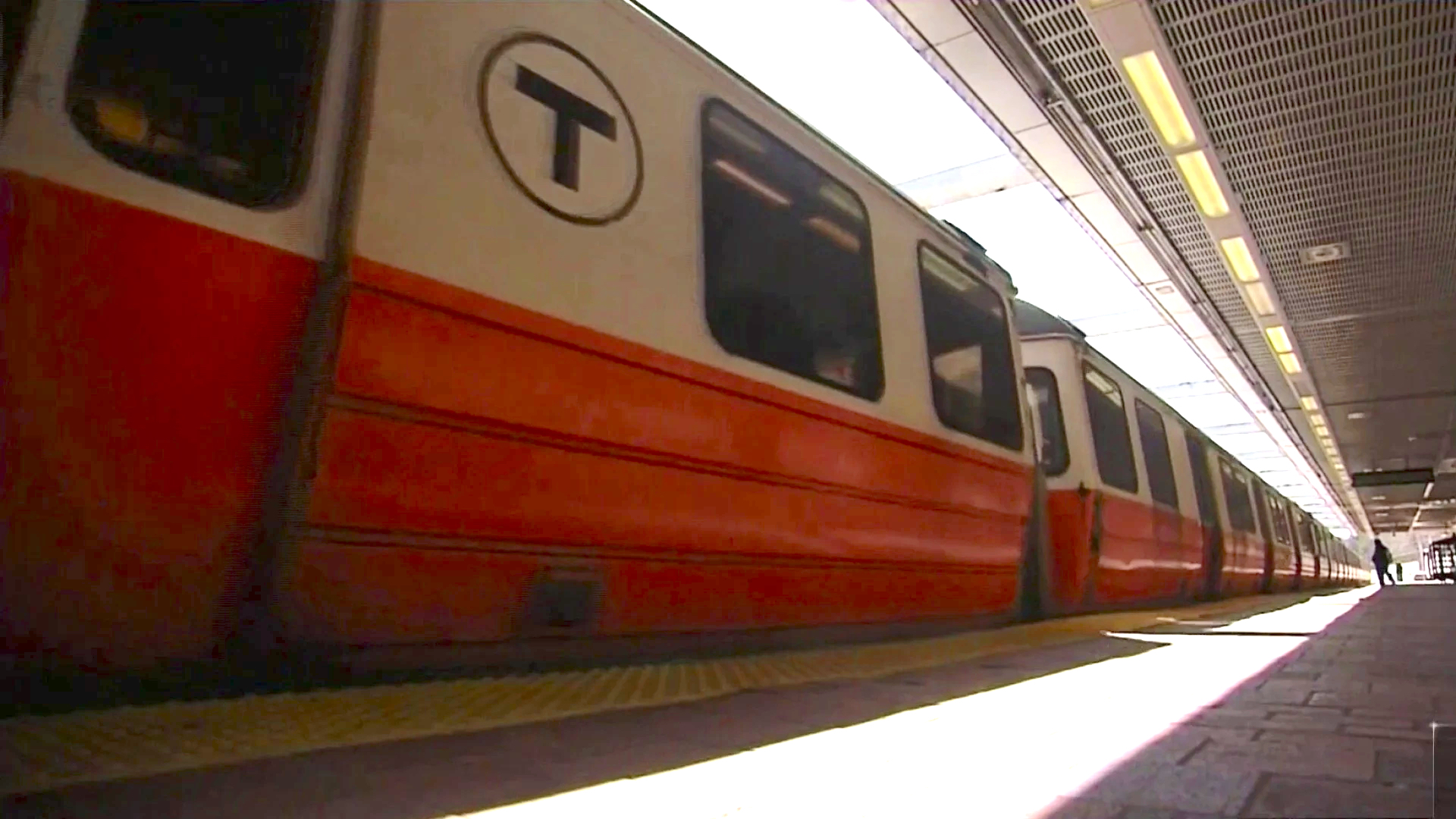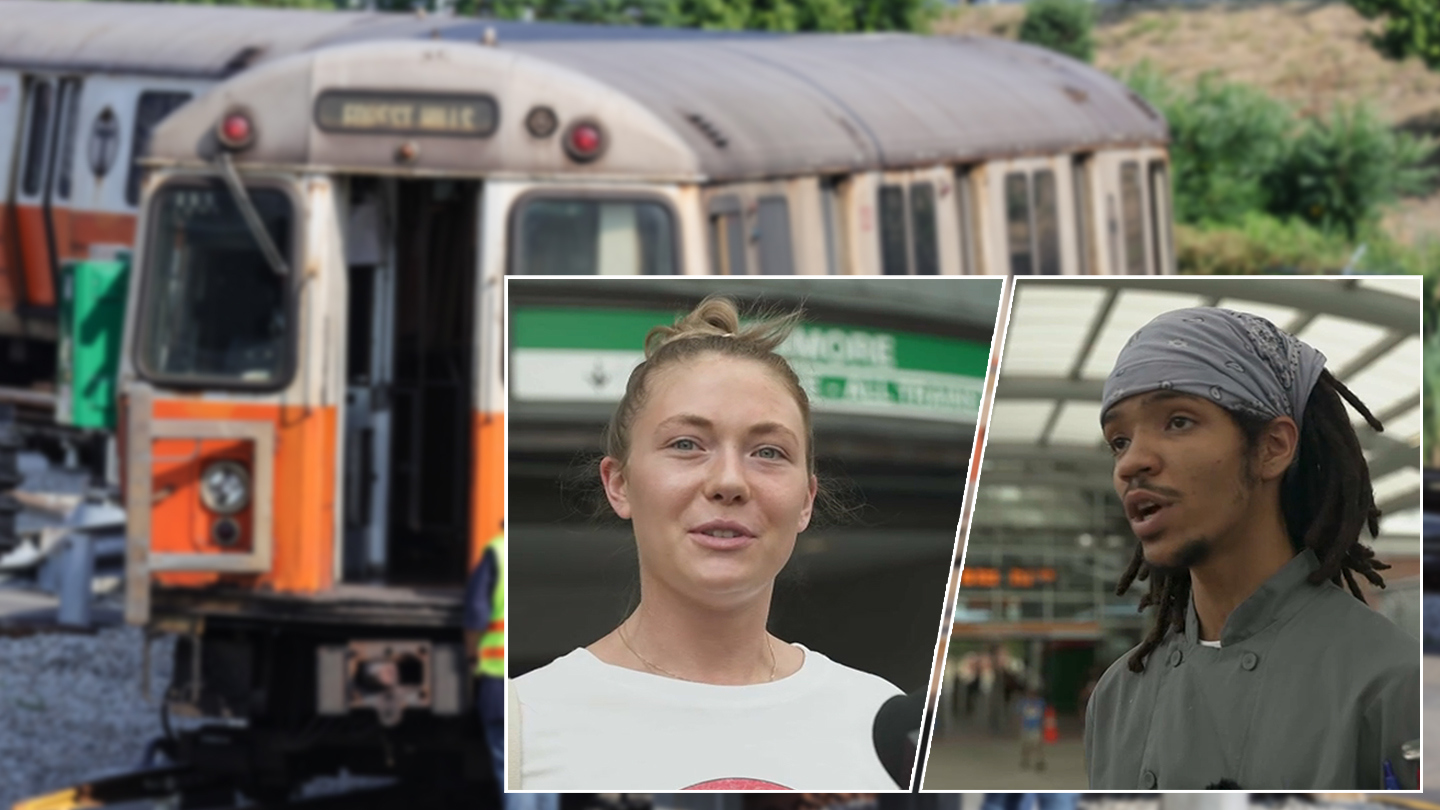With a top state lawmaker calling for de facto federal receivership of the MBTA to address a torrent of safety failures, Boston Mayor Michelle Wu said Monday that the agency needs "a partnership, not a takeover."
Wu, who leads the city at the heart of the T's sprawling subway, bus and commuter rail network, lamented that the fraying quality of service and backlog of unaddressed maintenance "never should have gotten to this point" but drew a line in the sand around ceding control to federal overseers.
WATCH ANYTIME FOR FREE
Stream NBC10 Boston news for free, 24/7, wherever you are. |
"We need a partnership, not a takeover," Wu said. "The situation is at a breaking point when riders don't know on any given day what might come up, how serious of a safety concern might emerge that day, how late they will be that day. It is time for sustained focus, investment and action to tackle what we've known for many, many years has been a building problem."
An escalation in the Federal Transit Administration's involvement at the MBTA looms as a possible outcome once the oversight office completes its ongoing safety management inspection, expected to wrap up this month.
Get updates on what's happening in Boston to your inbox. Sign up for our News Headlines newsletter.
Sen. Ed Markey, who joined Wu at a Monday event to highlight a new spending bill the U.S. Senate approved a day earlier, also called for the FTA and MBTA to craft a "very close working relationship."
"For workers, for students, it's got to get fixed, and we need the closest partnership with the FTA, which has identified the problems in eye-watering details, to work with the MBTA to get it fixed and get it fixed as quickly as possible," he said.
Markey pointed to the people who rely on public transportation.
"These are working people, immigrant families, working hard but they need the T, and we cannot have this system shut down again," Markey said.
Wu's opposition to a "takeover" put her somewhat at odds with Transportation Committee Co-chair Rep. William Straus, who made clear that he wants federal regulators to place the region's transit authority into "functionally the equivalent" of receivership.
Straus, who first floated the topic in an interview with Axios Boston last week, told the News Service on Monday he wants the FTA to go beyond ordering corrective action at the MBTA and remain "on top of the situation basically every day."
More on the MBTA
He said he wants the federal agency to take the same action with the T that it did in 2015, when the FTA assumed temporary, direct safety oversight of the Washington Metropolitan Area Transit Authority, or WMATA. That expanded role continued for about three and a half years.
"If the T is about to be in some kind of transition, which I think it needs to be, in the meantime we need to have the extra oversight and implementation authority of the FTA," Straus said. "I'm not calling for a permanent takeover, but what I'm saying is, as the T gets to where we all want it to be in terms of managing a transit system, the FTA is going to have to have more than just an investigatory and directive-issuing role, drawing on the precedent of what they did seven years ago in Washington, D.C."
Between JFK/UMass and Braintree transit stops, commuters on the Red Line are dealing with another round of interruptions, with shuttles replacing trains for a second week, every night after 9 p.m. until Thursday.
"Taking the shuttle buses are a good substitute for now, but it just adds to the commute time, which kind of sucks," noted commuter Brian Kuach.
That extra commute time is also affecting Shankar Shorter.
"I usually take the Red Line all the way down to Braintree, and then ever since they said there was maintenance going on at the track, like, it's kind of my only option to get back there," said Shorter.
Whether it's a federal government takeover by the FTA or a private-public partnership, all Andrew Kinloch wants is a safe, reliable and affordable way to get home.
"I don't think many people actually consider who's putting the money into providing for wherever we’re going. It's a service, we need to get around," he said. "As long as we can still afford it, that all I care about."
The FTA has already taken rare steps to prompt changes at the T. Its ongoing probe is only the second of its kind the agency has ever launched, and federal investigators already ordered a range of immediate actions before wrapping up their final report.
In June, the FTA outlined four corrective actions the MBTA had to address within, at most, 30 days. One order to rein in the number of hours dispatchers worked prompted the T to slash service on the Red, Blue and Orange Lines. Another order sought to prevent runaway trains, and the MBTA's response proved so unsatisfactory that the FTA demanded a "safety standdown" in late July.
The federal scrutiny provided the "impetus" for the MBTA to shut down the entire Orange Line for 30 days of maintenance, T General Manager Steve Poftak said last week.
"We wouldn't do this without the FTA's permission," Gov. Charlie Baker said Wednesday.
Straus said state lawmakers should not face blame for the state of the public transit system or the unprecedented steps now underway to address its problems because the Legislature "does not have a role, a responsibility, in day-to-day operations." That, he said, is the executive branch's job.
Asked why the Baker administration would not be equipped to handle addressing the T's problems without direct federal intervention, Straus linked the question to his committee's ongoing oversight hearing about the MBTA.
"I don't have a final answer yet, but I do know that for the public's sake, work needs to be done now," he said.
He also pointed to a 2019 independent report that also highlighted widespread safety issues at the T, which warned that the MBTA's emphasis on major capital projects drew attention, resources and personnel away from day-to-day operations.
Straus said he has not directly communicated his outlook to FTA officials, whom he said have "the qualifications to assess on the ground what is required without hearing behind the scenes from me."
He and fellow Transportation Committee Co-chair Sen. Brendan Crighton invited FTA representatives to the panel's first oversight hearing into the MBTA in July, but the federal officials declined amid their ongoing investigation.
While the wait continues for the FTA's final report summarizing its investigation and any actions that prompts, the Baker administration is pursuing never-before-taken steps to conduct overdue maintenance on the T.
The MBTA will close the entire Orange Line from the night of Aug. 19 through Sept. 18, and a segment of the Green Line between Government Center and Union Square will similarly be shut down between Aug. 22 and Sept. 18. The shutdowns will overlap with the annual influx of families and students attending colleges in Boston.
Wu said her administration is still working with MBTA officials on ways to help replacement shuttle buses run as smoothly as possible, and Boston Chief of Streets Jascha Franklin-Hodge tweeted Monday that city planners are working to carve out some road space solely for those buses.
But Wu still anticipates the disruption will be intense.
"It will be chaos. There's no other way," she said. "This is not an ideal situation by any means, and we never should have gotten to this point, but it is because of decades of delayed action, deferred maintenance, starving our public transit system of the resources it needed, (and) attaching the Big Dig debt to a public transit agency that made the MBTA carry more debt than any other public transit agency anywhere in the country."
"We are fighting to make sure that this moment is one that we start to make right, finally, and the unprecedented, painful four-week shutdown of the Orange Line and partial shutdown of the Green Line as well will actually result in the improvements and the changes so we can count on this service when we come back online," Wu added.




